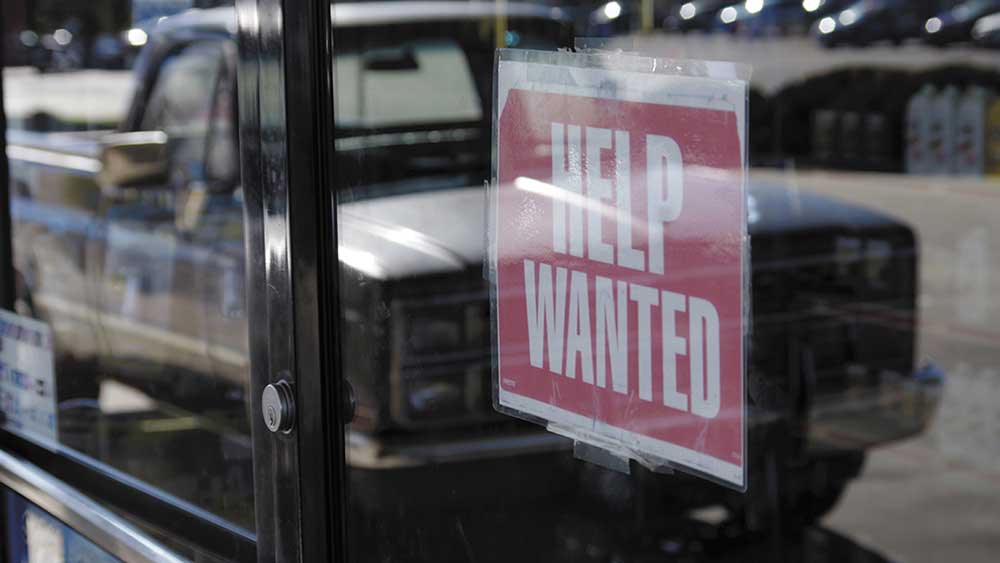[ad_1]
U.S. employers added a solid 263,000 jobs in September, despite Federal Reserve efforts to slow the labor market. The unemployment rate slipped back to 3.5%, matching a half-century low. After the jobs report, the Dow Jones Industrial Average fell solidly, putting this week’s stock market rally attempt on shaky ground.
X
The private-sector added 288,000 jobs, while government jobs fell by 25,000.
The average hourly wage rose 0.3% on the month, matching expectations. However, annual wage growth of 5.0% trailed forecasts of 5.1%.
Job gains for July and August were revised up by a combined 11,000. The average job gain over the past three months is a strong 372,000.
The unemployment rate was expected to hold at 3.7%. This month’s fall in unemployment came as 57,000 people left the labor force, meaning they’re working or looking for work, while 204,000 people got jobs.
The share of the working age population (age 16 and up) participating in the labor force dipped to 62.3%.
The headline job and wage figures come from the Labor Department’s monthly survey of employers. The separate household survey details labor force participation, work status and unemployment.
Dow Jones, Treasury Yields React To Jobs Report
The Dow Jones skidded 1% in early Friday’s stock market action. The S&P 500 lost 1.3% and the Nasdaq composite 1.8%.
The Dow and other major indexes rallied strongly on Monday and Tuesday, after closing at bear-market lows on Friday. But the Dow has pulled back the past two sessions as oil prices rose as Fed officials pushed back against talk that global financial market jitters could stand in the way of much more monetary tightening.
After Friday’s jobs report, markets were pricing in 82% odds of a 75-basis-point rate hike on Nov. 2 and even higher odds of a further half-point hike on Dec. 14.
Through Thursday’s close, the Dow Jones has fallen 18.7% from its Jan. 4 all-time closing high but remains 4.2% above its Sept. 30 closing low. The S&P 500 is up 4.4% from last week’s low, but down 21.9% from its all-time closing high. The Nasdaq composite is 4.7% above its bear-market closing low, but remains 28.3% below its record high.
After the jobs data, the 10-year Treasury yield rose 6 basis points to 3.89%, closing in on recent 12-year highs around 4%.
Be sure to read IBD’s The Big Picture every day to stay in sync with the market direction and what it means for your trading decisions.
Jobs Report Details
The leisure and hospitality sector added 83,000 jobs. Factory employment grew by 22,000.
Construction jobs rose by 19,000. Health care and social assistance payrolls rose 75,000. Retailers shed 1,100 jobs, while transportation and warehousing jobs fell 7,900.
Please follow Jed Graham on Twitter @IBD_JGraham for coverage of economic policy and financial markets.
YOU MAY ALSO LIKE:
Albemarle Plots Decade-Long Lithium Charge
These Are The 5 Best Stocks To Buy And Watch Now
Join IBD Live And Learn Top Chart-Reading And Trading Techniques From The Pros
[ad_2]
Image and article originally from www.investors.com. Read the original article here.

